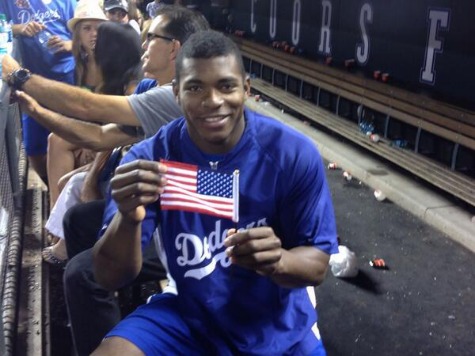(AP) Cuba lets athletes compete in foreign leagues
By ANNE-MARIE GARCIA
Associated Press
HAVANA
Cuba announced Friday that its athletes will be allowed to sign contracts to compete in foreign leagues, a shift from decades of policy that held professional sports to be anathema to socialist ideals.
The measure promises to increase the amount of money baseball players and others are able to earn, and seems geared toward stemming a continuing wave of defections by athletes who are lured abroad by the possibility of lucrative contracts, sapping talent from national squads.
It was not immediately clear if the ruling would let Cuban baseball players jump to the U.S. Major Leagues without restrictions imposed by local or U.S. government policies.
Cuban athletes will have to pay taxes on any earnings from foreign clubs, and the 51-year-old U.S. embargo outlaws nearly all American transactions with the Cuban government.
“A change in Cuban laws does not affect our licensing procedure,” said John Sullivan, spokesman for the Treasury Department’s Office of Foreign Assets Control, which enforces limits on transferring money to Cuba.
Athletes will be eligible to play abroad as long as they fulfill their commitments at home, the Communist Party newspaper Granma reported. For baseball players, that means being available not only for international competitions but also the November-April domestic league.
“It will be taken into account that they are in Cuba for the fundamental competitions of the year,” Granma said.
The paper said the decision was approved at a recent session of the Council of Ministers, which is headed by President Raul Castro.
“International experiences, including 10 sporting laws of various Latin American nations, were studied,” it added.
Even if Cubans have trouble playing in the Major Leagues, it’s easy to envision ballplayers playing in Mexico, Japan, Venezuela or other countries during their off-season, something that has happened before in isolated instances.
Alfredo Despaigne spent this summer with the Pirates of Campeche, Mexico. Previously, Omar Linares played in Japan.
In the 1990s, some athletes in other sports such as volleyball played in European leagues.
A number of athletes, especially baseball players, have defected in recent months and years. They include Yasiel Puig, who signed a multimillion-dollar contract with the Los Angeles Dodgers.
Professional sports were outlawed under Fidel Castro in 1961, two years after the Cuban Revolution.
Granma also announced raises at home for athletes, including bonuses for individual achievements and collective awards for team success.
Baseball players who appear in 70 percent of league games will be awarded $208. League leaders in hitting and other categories get an extra $41. The team that wins the title gets $2,700 to split.
Players in the National Baseball Series will earn $41 a month, and Olympic medalists around $63.
It’s not clear what athletes were paid before, but monthly state salaries in Cuba average about $20 plus the social benefits provided to all islanders.
On top of that they’ll get a monthly “stimulus” for international achievements, ranging from $26 for being on national squads to $104 for an Olympic gold medal.
Medalists will also continue collect lifetime monthly awards of $100 to $300.
The new rules do not appear to apply to athletes who left in the past, either through defection or other means, such as champion hurdler Dayron Robles who left for Europe after being released from his commitment in Cuba.
They take effect for baseball players when league play kicks off in November. For all other athletes, they begin Jan. 1.

COMMENTS
Please let us know if you're having issues with commenting.